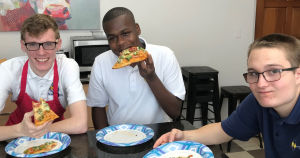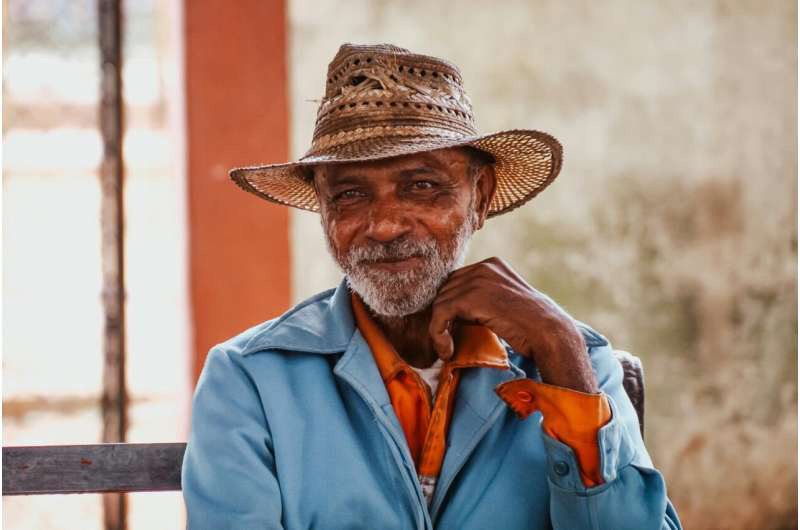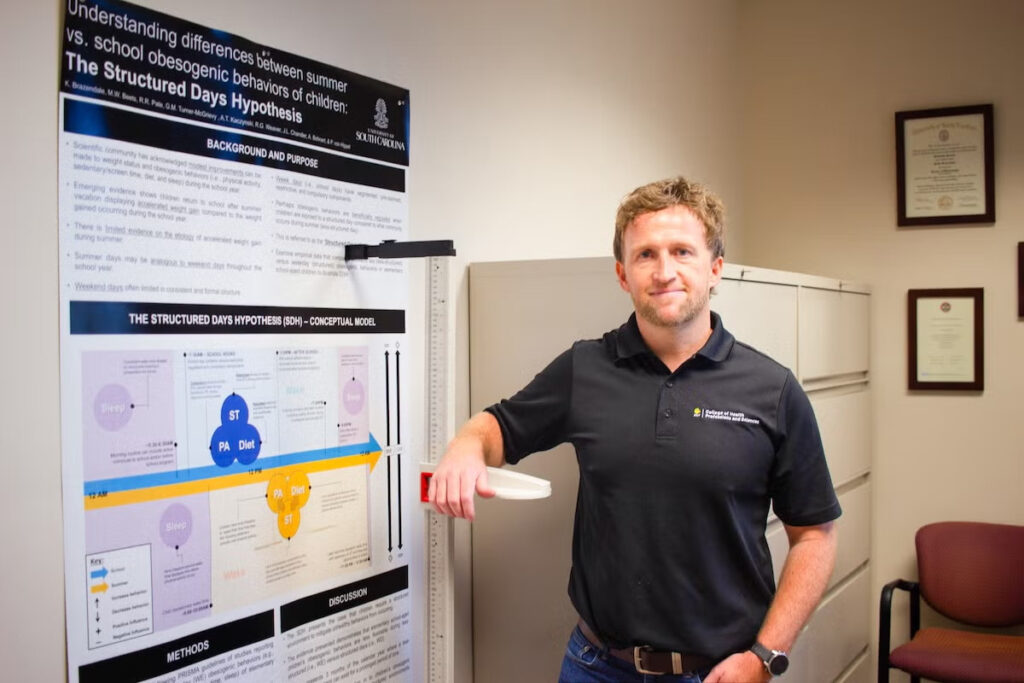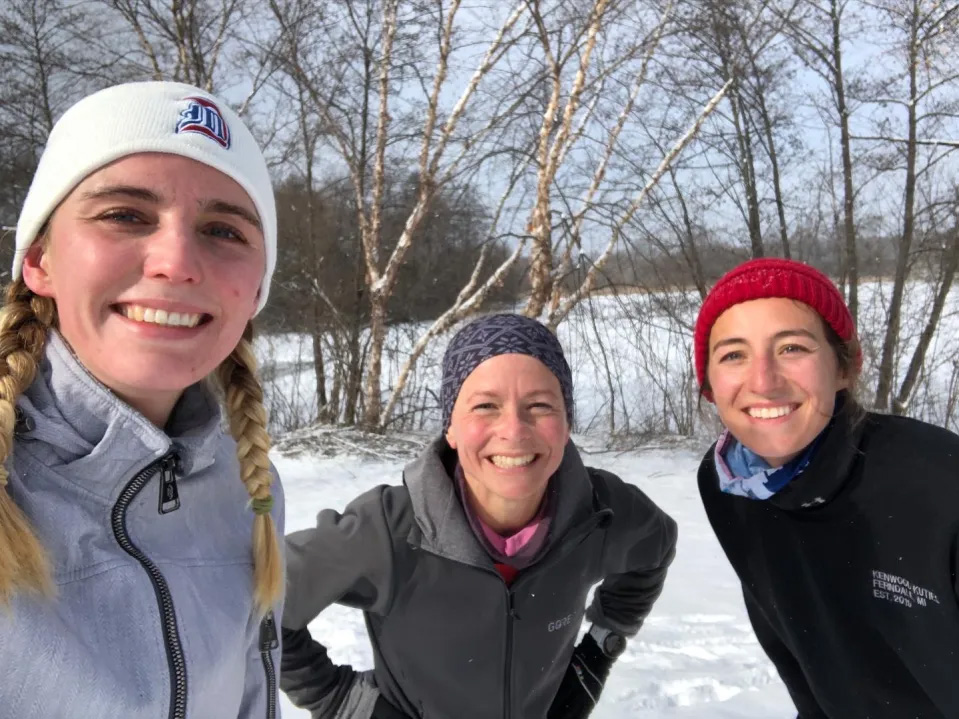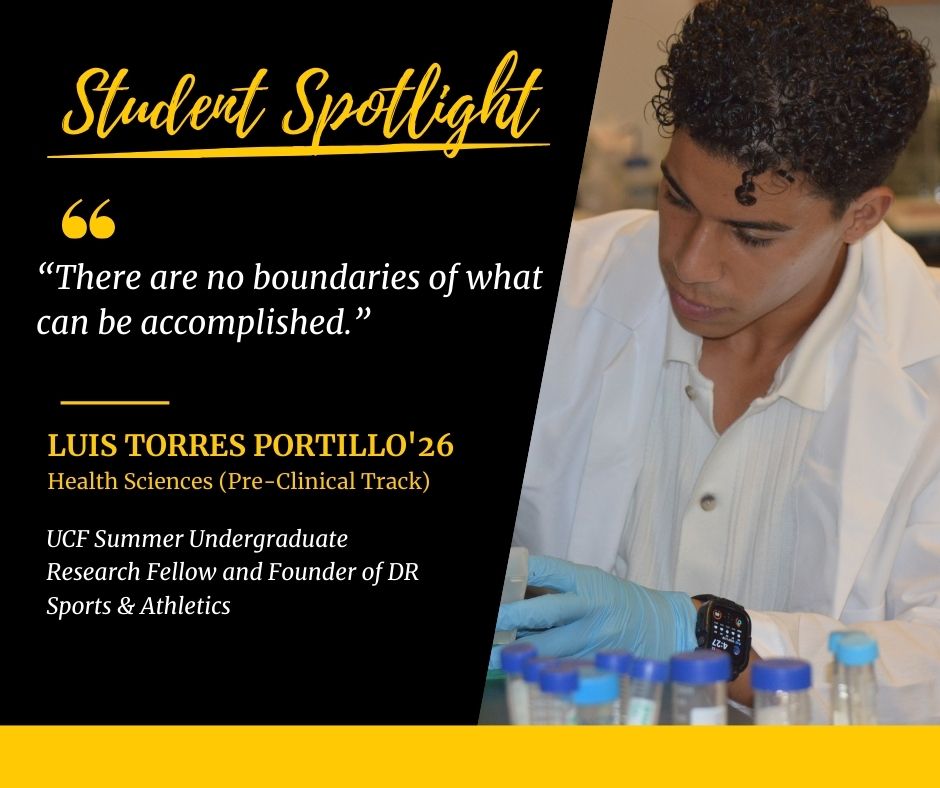Overweight and obesity are common conditions in the U.S. pediatric population, but children with autism spectrum disorder have a 41 percent greater chance of having these health conditions than their typically developing peers. Researchers at UCF are developing a program to teach children with ASD how to make better food choices.
Jeanette Garcia is the lead researcher and assistant professor in health sciences. Her pilot program aims to increase education about healthy eating among ASD youth. The program joins UCF undergraduate researchers with high-school aged students at The Paragon School, a private school in College Park for students with high-functioning ASD. Garcia developed the program with the help of colleagues and undergraduate students on her research team to increase exposure to new foods, educate about nutrition, and provide life skills that empower students to prepare meals on their own.
While it’s too early to say the impact of the program, it’s clear the students are enjoying it.
“This program has the kids so engaged, they are literally eating it up,” said Garcia.
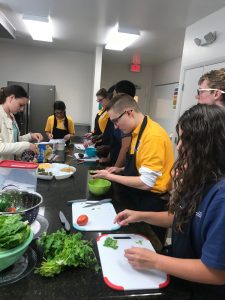 Garcia attributes the success of the program to the peer mentoring structure that it uses. Classes are led and taught by UCF undergraduate students, which seems to help the students relate to their “teachers.” In addition to leading the classes, UCF students also helped develop the content. Garcia knew that keeping the attention of students with ASD can be a challenge, so she asked her students to gamify the content – a learning technique she knew would make it fun for the participants.
Garcia attributes the success of the program to the peer mentoring structure that it uses. Classes are led and taught by UCF undergraduate students, which seems to help the students relate to their “teachers.” In addition to leading the classes, UCF students also helped develop the content. Garcia knew that keeping the attention of students with ASD can be a challenge, so she asked her students to gamify the content – a learning technique she knew would make it fun for the participants.
“The students are way more creative than I am, and they came up with really cool ways for getting the kids engaged in the content and competing against each other- something that they really like,” said Garcia.
The program empowers students to make their own food choices. One activity had students make their own pizza. There were plenty of options to choose from including vegetables, meats and cheese. Garcia considered it a success when students would add even one vegetable to their pizza that they normally would not even try. Another lesson consists of a mobile farmers market coming to campus, providing the opportunity for students to learn to shop on a budget and prepare a meal with their purchases.
In addition to teaching about recommended food intake and nutrition, the program also teaches life skills, like how to create a shopping list, how to follow a recipe, and knife skills.
The 8-week program consists of classes held twice per week. There are pre and post assessments, as well as interviews, done with the students and with their parents to measure the impact of the program.
When the program ends, Garcia hopes to crunch the data to see what positive changes the program achieved and tweak the program for the next cohort to make it even better. In the end, she hopes to have a structured guideline for providing this type of education for youth with ASD.
“At the end of the class, we send them off with a cookbook of all the recipes they learned in class, but we hope the impact is greater than what any cookbook can achieve,” said Garcia.
